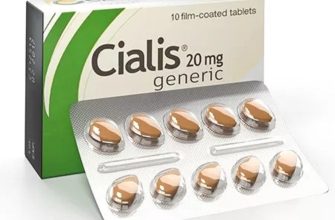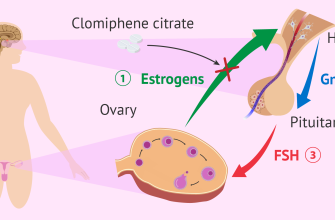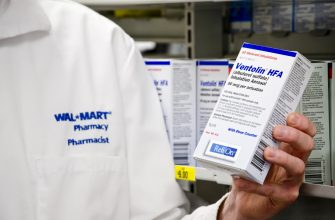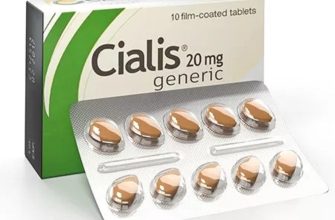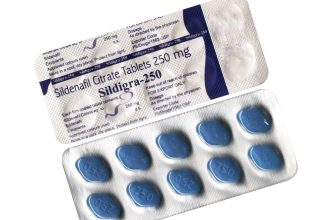Accutane, while highly effective for severe acne, requires careful consideration for teenage boys. Its potential side effects, though manageable with proper medical supervision, necessitate a thorough understanding of both benefits and risks before starting treatment.
Regular blood tests monitor liver function and lipid levels, crucial aspects of safety during Accutane therapy. These tests, performed frequently throughout the treatment period, allow doctors to adjust medication dosages or even halt treatment if necessary, minimizing potential long-term health complications.
Open communication with your dermatologist is paramount. Discuss any pre-existing health conditions, family history, or concerns openly. This proactive approach ensures the doctor can personalize your treatment plan, addressing specific needs and potential risks tailored to your individual situation. Remember to promptly report any unusual symptoms.
Mental health is another crucial factor. Accutane has been linked to depression and anxiety in some users. Maintaining open communication with your doctor, family, and friends will help in managing any emotional changes that may occur during treatment. Seek professional help immediately if you experience significant shifts in mood or mental well-being.
While Accutane offers a powerful solution for acne, responsible use involves close medical monitoring and open dialogue. The decision to use Accutane should be a collaborative one, balancing its potential benefits against the necessary precautions and potential side effects.
- Is Accutane Safe for Teenage Boys? Understanding the Risks and Benefits
- Potential Side Effects and Risks in Adolescent Males: A Detailed Look
- Specific Considerations for Adolescent Development
- Long-Term Effects and Follow-up Care
- Weighing the Benefits Against the Risks: When is Accutane a Suitable Treatment Option?
Is Accutane Safe for Teenage Boys? Understanding the Risks and Benefits
Accutane, or isotretinoin, offers a powerful solution for severe acne, but carries significant risks. For teenage boys, careful consideration is paramount.
Benefits: Accutane frequently clears even the most stubborn acne. Many young men see dramatic improvements in skin clarity within months. This can significantly boost self-esteem and reduce social anxiety associated with severe acne. The improvement is often long-lasting, reducing the chance of future acne outbreaks.
Risks: The most concerning side effects are related to the liver and psychological well-being. Liver function tests are mandatory throughout treatment to monitor for abnormalities. Increased risk of depression and suicidal thoughts is documented; close monitoring by a doctor is crucial. Other possible side effects include dry skin, lips, and eyes; muscle aches; and increased sun sensitivity. Specific instructions on managing these side effects will be provided by your doctor.
Before Starting Treatment: A thorough physical exam and blood tests are necessary. Doctors will assess your overall health and determine if Accutane is the right treatment option for you. Pregnancy risk is significant, requiring strict adherence to contraception protocols if you are sexually active or could become sexually active.
During Treatment: Regular check-ups are essential for monitoring your progress and detecting potential side effects early. Open communication with your doctor is vital, reporting any changes in mood, physical symptoms, or health concerns immediately. Avoid sun exposure and use prescribed moisturizers to mitigate dry skin.
Conclusion: Accutane can be highly effective for treating severe acne in teenage boys, but carries serious risks requiring diligent monitoring and patient compliance. A comprehensive discussion with a dermatologist is essential to weigh the potential benefits against the risks before starting treatment.
Potential Side Effects and Risks in Adolescent Males: A Detailed Look
Accutane, while highly effective, carries potential side effects unique to adolescent boys. Dry skin and lips are common, but manageable with lip balm and moisturizers. Muscle aches may occur; regular exercise, balanced with rest, can help. Increased risk of nosebleeds warrants caution; avoid forceful nose blowing. Mood changes, including depression and irritability, need careful monitoring. Open communication with parents and medical professionals is paramount. Regular blood tests track liver function and cholesterol levels. Potential effects on bone growth require monitoring, particularly for those still developing. Reduced sperm count, while temporary for most, necessitates a discussion with a doctor about contraception.
Specific Considerations for Adolescent Development
The impact on acne varies; some boys see rapid clearing, while others experience a slower response. Testosterone levels, crucial during adolescence, aren’t directly affected by Accutane but hormonal changes must be considered in treatment plans. Acne treatment usually involves a course lasting several months; consistent medication adherence is crucial for optimal results. Sun sensitivity increases. Consistent sunscreen use is vital, even on cloudy days. Accutane and alcohol interaction can worsen side effects; abstinence is recommended. Finally, regular check-ups with the dermatologist ensure optimal management and minimize potential long-term risks.
Long-Term Effects and Follow-up Care
Most side effects subside after treatment ends. However, long-term monitoring for inflammatory bowel disease risk is advised. The dermatologist will discuss future acne management strategies to prevent recurrence. Open and honest communication about any concerns or side effects is critical for both the adolescent and his healthcare team throughout the entire process.
Weighing the Benefits Against the Risks: When is Accutane a Suitable Treatment Option?
Accutane, or isotretinoin, should be considered when severe acne significantly impacts a teenage boy’s quality of life. We’re talking about acne resistant to other treatments, causing physical discomfort, emotional distress, or scarring.
Consider Accutane if: Other acne treatments, including topical medications and antibiotics, have failed to provide adequate improvement after several months. A dermatologist will carefully assess the severity of the acne, considering factors such as the number of inflamed lesions, presence of cysts or nodules, and the extent of scarring.
Before starting Accutane, a complete medical history is vital, including any pre-existing conditions. Regular blood tests monitor liver function and lipid levels throughout treatment. These precautions minimize potential side effects.
Factors influencing suitability: The potential benefits of clearer skin and improved self-esteem must outweigh the risks. These risks include dry skin, lips, and eyes; increased sun sensitivity; and potential effects on mood. A frank discussion with a dermatologist is key. They will help evaluate the benefits versus the risks and determine if Accutane is the right choice.
Specific situations: Accutane may be particularly suitable for teenagers with nodulocystic acne, a severe form characterized by painful, deep lesions. It is not the first-line treatment, however, and only used after other options have been exhausted.
In short: Accutane is a powerful medication, and its use should be carefully considered. A dermatologist’s expert evaluation is necessary to determine whether the potential benefits of treating severe acne outweigh the associated risks for each individual teenager.


